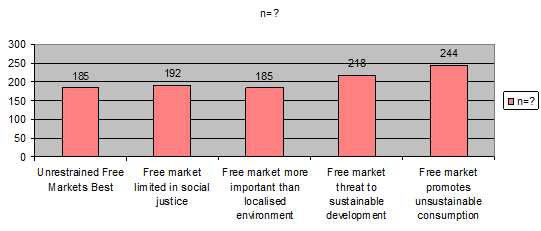Part 1 showed that the Lewandowsky study was not of >1200 people. The questionnaire posted on the web was actually to recruit people so that those who showed “conspiracist ideation” could be selected and studied further. The total number of people who accepted one or more of Lewandowsky’s conspiracy theories was actually 553, and the greatest number who accepted any one of the theories was 289 while the smallest was 10.
The error for a sample size of 10 is plus or minus 30.99% at 50%, so the conclusions drawn on the question with the sample of 10 – whether the moon landing was faked or not – are useless.
This post will look at the question of what is a conspiracy, and also what constitutes “conspiracist ideation”. The conclusion, just to save you reading to the bottom, is that Lewandowsky has no clear idea so adapts it to what fits his thesis. This is not science because he moves the goal posts to a spot where he will get a positive correlation. It more or less doesn’t matter where he kicks the ball, it will land in the goal because the goal will move to accommodate the ball.
There is a problem in defining exactly what is a conspiracy and why there is a problem believing in conspiracies. Conspiracies are all around us. If you don’t believe in conspiracies, then you are naive. The law recognises that conspiracies occur, and in certain circumstances they are punishable if proven – see criminal and trade practices law.
Lewandowsky defines a conspiracist ideation as “the attempt to explain a significant political or social event as a secret plot by powerful individuals or organisations”.
Anyone who does not have a conspiracist ideation either wasn’t there, or wasn’t paying attention. Did Julia Gillard plot to overthrow Kevin Rudd? Was this a significant political event? Was it secret? Is the NSW right of the ALP powerful? No need to answer, this is all rhetorical.
If conspiracist ideation tells us anything about particular individuals who have it, then it is that they possibly understand better than others what is going on.
Of course, in some cases they are also mad.
Lewandowsky tries to define conspiracist ideation in terms of belief in “mad” ideas, such as that the moon landing was faked, but by doing this he ends up with a definition that is really only limited to belief in certain conspiracies, not a tendency to believe in conspiracies per se.
Which creates a problem for him. Conspiracies are by definition secret, and unless one has been proven to exist, there is no way of proving that they don’t exist. So, I blogged on June 11, 2010 that Kevin Rudd was under threat and might lose. On June 23, Gillard publicly launched her coup and the next day Rudd was gone. The conspiracy was therefore proven to exist.
However, up until the night it was launched prominent plotters were denying that it existed. If for some reason it had not carried through, I could have been criticised for seeing a conspiracy where none existed. That would not be fair, but I would not have been able to prove that it was not fair because it would be just a matter of opinion.
So, while believing that the moon landings were faked is wrong, believing that JFK was assassinated by a group rather than a lone gunman, has a much higher probability of being true, and is certainly not “mad”. It may even be true, but without the evidence, that will be a matter of opinion. In his sample 10 people thought the moon landings were fake and 247 thought the Kennedy gunman was not alone, which bears out my point.
So his first problem is that what he defines as a conspiracy (which in his terms seems to be something which people believe in, but which he doesn’t believe exists) is that there is no objective test of whether the conspiracy exists or not.
So he decides on a subjective basis what is a conspiracy, which means he has no scientific basis for his definition.
That then leads to questions of why he includes some and excludes others.
For example. There is a conspiracy theory that global warming skeptics are funded by big oil. Lewandowsky excludes this from his list. His writings confirm that he believes in this conspiracy. Why isn’t it on the list? The fact that it isn’t indicates that he isn’t interested in “conspiracist ideation” in general, but only specific conspiracies.
The only conclusion I can reach is that he leaves it out because it would significantly change his theory of the link between “conspiracist ideation” and “scientific denial”. My expectation is that a lot of those who accept what he calls “the science”, would also accept that conspiracy.
So, what can we say about the conspiracy theories that he does include? One thing is that they are almost all to do with conspiracies by governments or government agencies.
If you subjectively select those who believe in conspiracy theories that have to do with governmental corruption, then you are selecting a group that is prone to believe that the government is trying to put one over on them. No-one should be surprised if these people are less inclined than the population at large to believe in global warming as, putting the science aside, this is something which governments are trying to impose on their populations.
If he had chosen conspiracy theories where corporate or other non-governmental actors are the conspirators, I suspect he would get a different result entirely.
But that is not where it stops. He also decided to eliminate two conspiracy theories. One, that CO2 causing climate change was a hoax, and the other that “U.S. agencies intentionally created the AIDS epidemic and administered it to Black and gay men in the 1970s.”
So, the problem with this part of Lewandowsky’s work is that belief in conspiracies ought to be widespread amongst intelligent people, because they exist. That what is a false conspiracy is unprovable and therefore often a matter of genuine dispute. That he selected conspiracies that were likely to give him the result that he wanted, and generalised from them that they represented a particular mindset. And that he also eliminated conspiracy theories that he had polled on from his model.
If “conspiracist ideation” has any genuine existence, then it ought to be able to be defined by certain behaviours, or in principle beliefs. So rather than listing what he subjectively determines are conspiracy theories, he should have asked questions about beliefs and behaviours.
Questions like “How strongly would you agree or disagree that government decisions are manipulated by commercial interests?”








